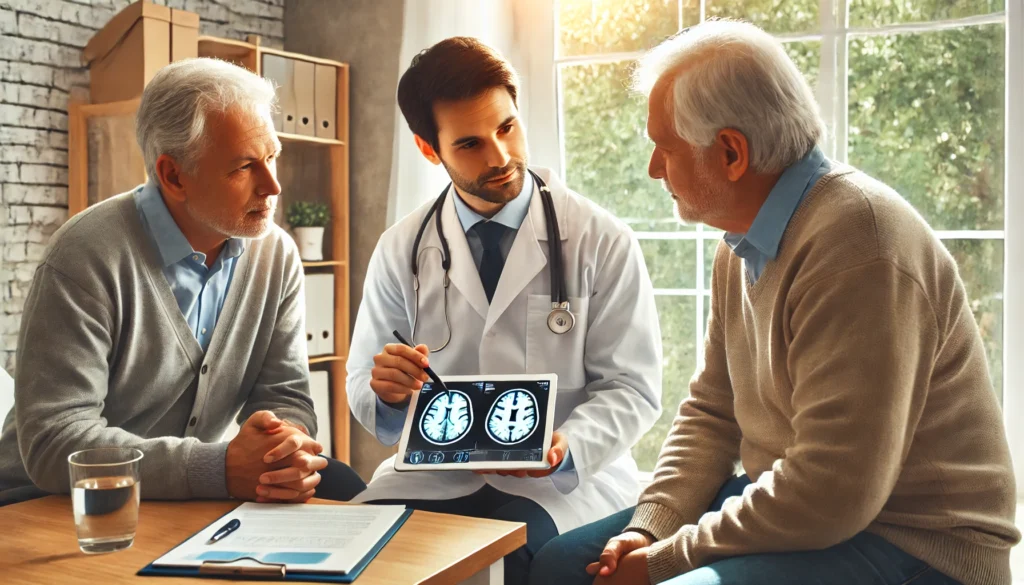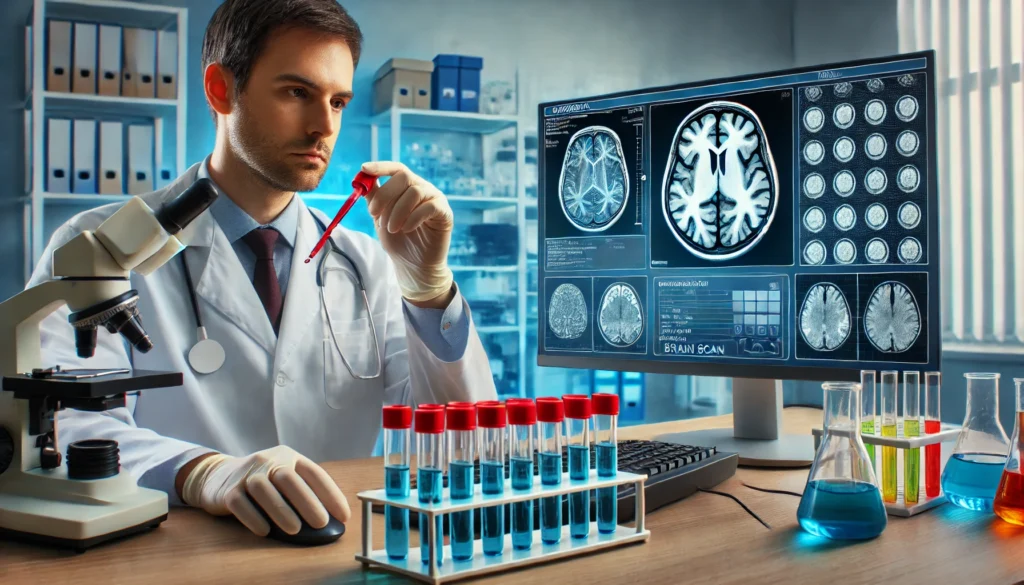This article explores in detail the intricate aspects of early detection regarding dementia, examining the significant role it plays in effectively managing the condition. Furthermore, it highlights why identifying dementia in its initial stages is a crucial and fundamental step in the ongoing battle against this complex and challenging condition that affects so many individuals and their families. Through this examination, we will uncover not only the importance of recognizing the signs early but also the potential benefits that come with timely interventions.
We’ll explore the historical context, current trends, and future implications of early diagnosis, offering insights into how it shapes patient care and research.
You may also like: Tips to Improve Low Average Memory Performance
The Historical Context of Dementia Diagnosis
Dementia, encompassing conditions like Alzheimer’s disease, has been recognized for centuries. Yet, systematic approaches to its diagnosis have only emerged over recent decades. Historically, dementia was often misinterpreted as a natural consequence of aging. This misconception impeded early detection and intervention efforts, which are crucial in managing the disease effectively.
Misinterpretation and Social Stigma
For much of history, dementia was shrouded in mystery, often viewed through a lens of superstition or dismissed as senility. This lack of understanding contributed to social stigma, leaving families to manage without adequate support or resources. The perception of dementia as an inevitable part of aging discouraged scientific inquiry and delayed the development of diagnostic criteria.
Evolution of Medical Technology
The evolution of medical technology has significantly transformed our understanding of dementia. Advances in neuroimaging and biomarker research have facilitated earlier and more precise diagnoses, shifting the focus from symptom management to proactive intervention. Techniques such as MRI and PET scans have allowed us to visualize the brain’s structure and function, offering insights into the physiological changes associated with dementia.
Transition from Symptom Management to Proactive Diagnosis
With the introduction of modern medical practices and advancements in healthcare technology, there has been a significant transformation in how we approach dementia. This change has moved us away from simply addressing the symptoms of the disease, which was the predominant focus in the past. Instead, healthcare professionals are now placing greater emphasis on the importance of accurately diagnosing dementia early on and developing comprehensive treatment plans aimed at slowing its progression and improving the quality of life for those affected by this condition. This holistic approach reflects a deeper understanding of dementia and recognizes the complexities of the disease, allowing for more tailored and effective interventions.
Early efforts focused on identifying cognitive decline, but today’s emphasis is on detecting subtle changes in brain chemistry and structure before symptoms become pronounced. This proactive approach has paved the way for interventions that can slow disease progression and improve patient outcomes.

Why Early Diagnosis Matters
Early diagnosis of dementia is a game-changer in patient care. It provides a critical window for planning and intervention, allowing for better management of symptoms and potentially slowing disease progression.
Enhanced Patient Care
Early diagnosis of dementia offers a critical window for planning and intervention. It allows for better management of symptoms, potentially slowing disease progression and improving quality of life. Knowing the specific type of dementia can guide treatment plans and help tailor interventions to individual needs.
Tailored Treatment Plans
Understanding the specific type of dementia is crucial for developing a personalized treatment plan.
Each specific type of dementia can have varying responses to the many medications and therapeutic approaches available. For this reason, it is crucial that healthcare providers make an accurate and thorough diagnosis. This accurate diagnosis not only helps in identifying the type of dementia an individual may be experiencing but also plays a significant role in ensuring that patients receive the most effective and suitable care tailored to their specific needs. By understanding the particular characteristics and symptoms of the diagnosed dementia type, healthcare professionals can create a more personalized treatment plan that maximizes the benefits of the chosen interventions.
Tailored treatment can also mitigate side effects and enhance the overall effectiveness of interventions.
Slowing Disease Progression
Early intervention can significantly impact the course of dementia. Certain medications and lifestyle changes are more effective when implemented early, potentially slowing the progression of cognitive decline. This can lead to a better quality of life for patients, allowing them to maintain independence for a longer period.
Improving Quality of Life
Beyond medical interventions, an early diagnosis allows for the implementation of supportive measures that enhance quality of life. Patients and families can adjust their routines, implement memory aids, and engage in cognitive exercises that support brain health. These efforts can help preserve cognitive function and improve daily living.
Empowerment Through Knowledge
Receiving an early diagnosis empowers patients and families. It provides clarity and allows them to make informed decisions about care, legal, and financial matters. This foresight is invaluable in preparing for the future, ensuring that both patients and their families are better equipped to handle the challenges ahead.
Informed Decision-Making
An early diagnosis opens the door to informed decision-making regarding treatment options and care strategies.
Patients and their families have the opportunity to delve into a wide range of options available for their health and well-being. This includes exploring different medical treatments, therapeutic approaches, and lifestyle adjustments. By examining these various interventions, they can select those that resonate with their personal beliefs, values, and specific health goals. This process of exploration allows for a more personalized approach to healthcare, ensuring that the choices made are in harmony with what is most important to them.
This empowerment leads to a sense of control over the disease.
Legal and Financial Planning
Knowing about a dementia diagnosis early on enables patients and families to address legal and financial matters proactively. This includes setting up power of attorney, creating living wills, and ensuring that financial affairs are in order. Early planning can alleviate stress and ensure that the patient’s wishes are respected.
Emotional Preparedness
The emotional impact of a dementia diagnosis can be profound. Early diagnosis provides time for patients and families to process emotions, seek counseling, and build a support network. This emotional preparedness can help mitigate anxiety and depression, fostering resilience in the face of the disease.
Access to Support and Resources
An early diagnosis opens doors to various support systems, including counseling, support groups, and community resources. These networks can provide essential emotional support and practical advice, helping families navigate the complexities of living with dementia.
Counseling and Psychological Support
Access to counseling services is crucial for both patients and their caregivers. Professional guidance can help individuals cope with the emotional and psychological challenges associated with dementia. Counseling can also provide strategies for managing stress and maintaining mental health.

Community Support Groups
Support groups offer a platform for patients and caregivers to share experiences, advice, and encouragement. These groups can be a source of solace and understanding, providing a sense of community and reducing feelings of isolation. Participation in support groups can lead to meaningful connections and friendships.
Educational Resources and Workshops
An early diagnosis allows families to tap into educational resources and workshops designed to enhance understanding of dementia. These resources can provide valuable information on managing symptoms, navigating the healthcare system, and accessing available services. Knowledge is a powerful tool in managing the disease effectively.
Current Trends in Early Detection
Recent advancements in medical research have revolutionized the early detection of dementia. From sophisticated imaging techniques to novel biomarkers, these innovations are reshaping diagnostic practices.

Biomarkers and Neuroimaging
Biomarkers, such as beta-amyloid and tau proteins, offer promising avenues for early detection. These biological indicators can be identified through cerebrospinal fluid tests and advanced imaging techniques like PET scans, providing
Further Reading:
Alzheimer’s Disease – Why We Need Early Diagnosis
The 10 benefits of early diagnosis
Important Note: The information contained in this article is for general informational purposes only, and should not be construed as health or medical advice, nor is it intended to diagnose, prevent, treat, or cure any disease or health condition. Before embarking on any diet, fitness regimen, or program of nutritional supplementation, it is advisable to consult your healthcare professional in order to determine its safety and probable efficacy in terms of your individual state of health.
Regarding Nutritional Supplements Or Other Non-Prescription Health Products: If any nutritional supplements or other non-prescription health products are mentioned in the foregoing article, any claims or statements made about them have not been evaluated by the U.S. Food and Drug Administration, and such nutritional supplements or other health products are not intended to diagnose, treat, cure, or prevent any disease.


